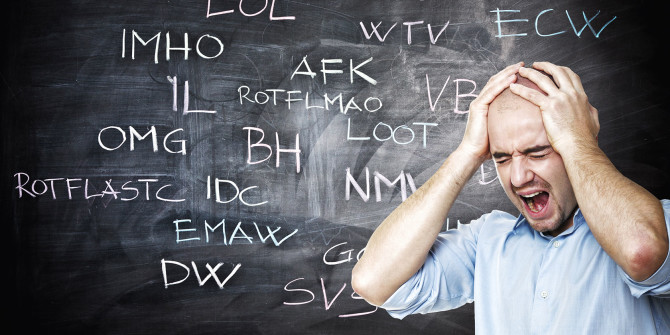BHUBANESWAR: FYI DIS IS 2F4U. This is not some high-end coded language of an intelligence agency that is wrongly being carried in our columns. Rather, this is a contemporary internet slang which means ‘For your information, this is too fast for you.’ Bizarre as it may sound this template is slowly shaping our daily lives and creeping into our regular and necessary modes of conversations.
These web trends raise a serious question. Will these slangs shape our conventional languages eventually? “Not really,” says Jagannath Mishra, a city-based expert linguist. “Internet slangs have very short lives. At times when social media platforms like Orkut and MySpace were on full swing, acronyms such as ‘BRB’ (Be right back), ‘G2G’ (Got To Go) and ‘CNC’ (Coast Not Clear) were used a lot by youngsters. These slangs seem to be forgotten and you would be considered fossil if you use them now.”
He also explained that many of these new words have been pre existing for long but have been popularised only recently. For instance, ‘social network’ made it to the English Dictionary back in 1973 but only became a terminology in the last decade.
There is, however, an interesting argument by Pramila Rath who teaches English at a college here. She explains that the internet has paced up on how we share information. However, what’s damaging is how social media jargons are creeping in and causing basic grammatical errors in young children. “Many kids in my class repeatedly fail to differentiate between ‘your’ and ‘you’re’ or its and it’s which is a generally accepted argot in social media.”
However, a college student Sushree Priyambada disagrees. “Nobody likes to send long messages these days. What’s App or Facebook is not school. It is the modern way of conversing. Besides, I would look odd and primitive if I send my friends long texts,” she said.
It’s interesting to note that Rath argues that internet slangs are insidiously messing with students’ language but on the other hand ‘LOL’ or Laughing Out Loud’ has already made to the Oxford Dictionary. So what makes this particular slang qualify the Bible of English language?
“Popularity,” explains Fiona McPherson, senior editor of Oxford English Dictionary in an interview. “If a word is in existence for more than five years it makes it to the dictionary.”
The above arguments do put a person in a fix with the usage of these slangs. But here is something interesting. A recent survey conducted by an online dating site ‘Zoosk’ said that poor grammar and spelling can have a negative impact on your love life. This is emotive stuff and if you too have FOMO (Fear Of Missing Out), perhaps you should consider going back to the drawing board.
Aviral Mishra, OP
